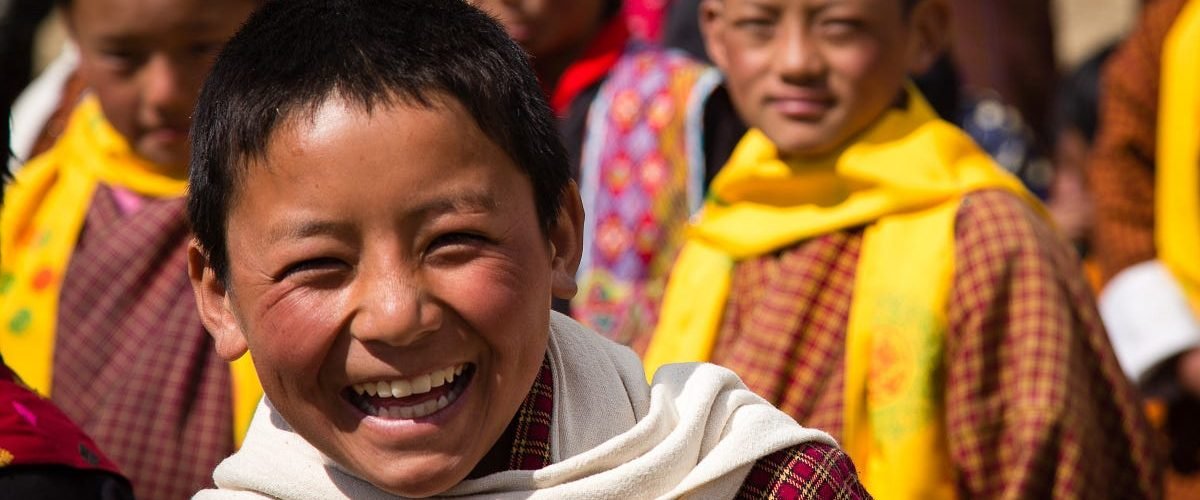The Bhutanese Way: Understanding Gross National Happiness
Bhutan’s journey with Gross National Happiness is a testament to the possibility of a world where development is balanced with well-being.

In a world increasingly driven by economic indicators and material wealth, the Kingdom of Bhutan presents a refreshing paradigm: Gross National Happiness (GNH). This unique philosophy prioritizes the collective happiness and well-being of its people over mere economic growth. But what exactly is Gross National Happiness, and how does Bhutan implement this philosophy into its national policies? In this blog post, we’ll delve into the essence of GNH and explore how Bhutan’s commitment to happiness shapes its culture, governance, and way of life.
The Genesis of Gross National Happiness
Gross National Happiness is a term coined by Bhutan’s fourth King, Jigme Singye Wangchuck, in the 1970s. The concept is rooted in the country’s Buddhist traditions, which emphasize spiritual and moral values over material ones. GNH is built on four pillars: sustainable development, environmental conservation, cultural preservation, and good governance. These pillars reflect Bhutan’s holistic approach to progress, integrating economic growth with spiritual well-being.
Pillars of Happiness: A Closer Look
Sustainable Development: Bhutan carefully balances economic growth with social development, ensuring that progress does not come at the expense of its citizens’ well-being. Education and healthcare are free, reflecting the country’s investment in its people’s happiness.
Environmental Conservation: With more than 70% of its land covered in forests, Bhutan is the only carbon-negative country in the world. Environmental protection is enshrined in its constitution, which mandates that a minimum of 60% of its land remains forested for future generations.
Cultural Preservation: In the face of globalization, Bhutan actively preserves its cultural heritage. Traditional dress, architecture, festivals, and languages are vigorously protected to maintain a strong national identity and sense of community.
Good Governance: Bhutan places a strong emphasis on transparency, accountability, and equity in its governance. The well-being of the population is considered the ultimate goal of governance, shaping policies and national priorities.
Measuring Happiness: More Than Just a Feeling
Unlike other countries that measure success through Gross Domestic Product (GDP), Bhutan assesses its progress through the Gross National Happiness Index. This index evaluates the population’s well-being across nine domains, including psychological well-being, health, education, time use, cultural diversity and resilience, good governance, community vitality, ecological diversity and resilience, and living standards. Surveys are conducted to gauge the happiness and satisfaction levels of its citizens, guiding government policies and initiatives.
The Impact of GNH on Society
The implementation of GNH has led to remarkable outcomes in Bhutan. Despite its small size and limited resources, the country boasts high literacy rates, a robust healthcare system, and a rich cultural landscape. Moreover, Bhutan’s emphasis on environmental conservation has not only preserved its stunning natural beauty but also positioned it as a leader in the global fight against climate change.
GNH: A Model for the World?
As nations grapple with environmental degradation, social unrest, and widening economic disparities, Bhutan’s Gross National Happiness presents an alternative model of development. The philosophy’s holistic approach to well-being, sustainability, and social cohesion offers valuable lessons for countries seeking to create more inclusive and harmonious societies.
Embracing Happiness the Bhutanese Way
Bhutan’s journey with Gross National Happiness is a testament to the possibility of a world where development is balanced with well-being. As more countries look for sustainable and equitable paths to progress, the Bhutanese way of understanding and prioritizing happiness could very well light the path forward.
